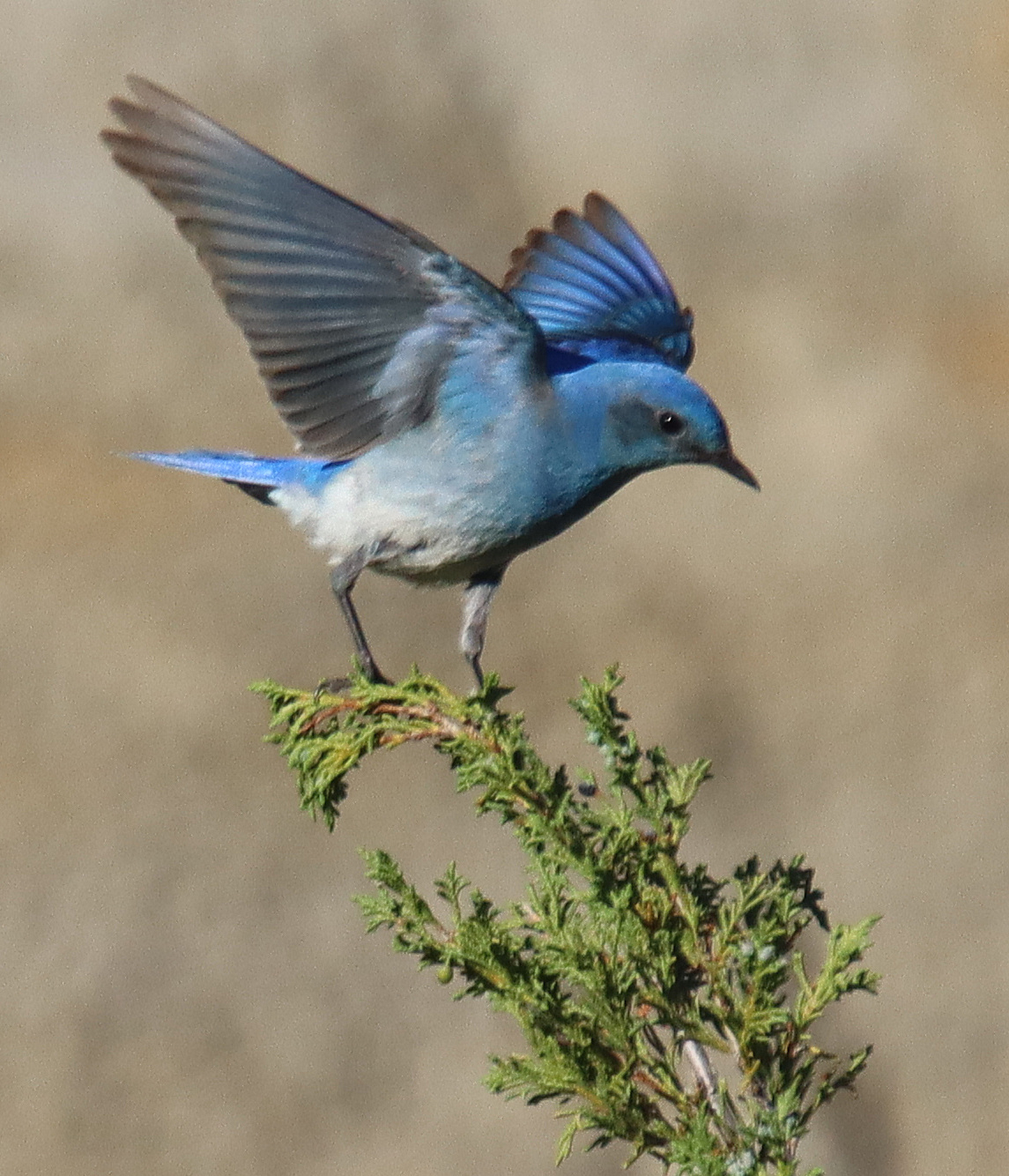
Simply enjoying the outdoors is clearly beneficial, but birds with all their varied behaviors, colors, shapes, and songs draw you into a natural experience (Mountain Bluebird photo by Paul Konrad).
|
A number of studies show that everyday birding encounters can boost your happiness and improve your ability to relax. Research shows that spending time in nature has positive effects that include reducing stress, restoring focus, and inducing feelings of awe and joy. “The exciting thing now is really going beyond that,” noted Melissa Marselle, an environmental psychologist at the University of Surrey. Scientists are digging into why birding has such a powerful mental release with the ability to create positive feelings, and how we can maximize these effects of birding.
A new study published in April illustrates this effect: Researchers found that when college students, faculty, and staff went on weekly 30-minute nature walks, they reported better personal well-being and reduced stress compared to people who performed their usual routines. Better yet, when the nature walkers specifically watched for birds during their walks, they realized even bigger benefits. Other studies have found that hearing bird songs helps people recover from stress and fatigue, and that these benefits may increase when people notice greater diversity in an area’s birdlife.
Attention may be one key factor in these findings, explained North Carolina State University wildlife ecologist Nils Peterson, a researcher and co-author on the nature walk study. Simply enjoying the great outdoors is clearly beneficial, but birds with all their varied behaviors, colors, shapes, and songs “draw you into that natural experience.” Watching a warbler fly to a perch or listening to a thrush’s melody can help us appreciate the beauty of birds in nature and tap into our senses, rather than dwell on our worries or distress.
How you observe birds contributes too. You can connect with nature more deeply through a slow or mindful birding practice, which emphasizes moving at a gentle pace to take in more details about the animals you encounter. Birding, after all, “doesn’t have to be a sport,” said Joan Strassmann, an evolutionary biologist and author of the recently published book, The Slow Birding Journal. “Birding can be a meditation.”
To see the original article, published in the fall issue of Audubon magazine, see Need Some Anxiety Relief? Let Birding Be Your Balm | Audubon